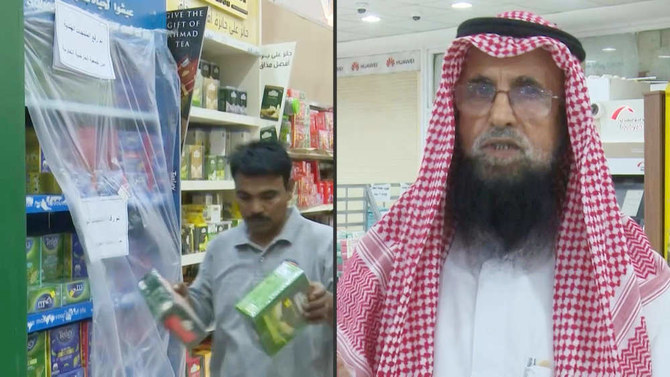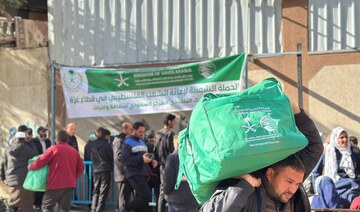KUWAIT CITY: A Kuwaiti supermarket pulled Indian products from its shelves and Iran became the latest Middle Eastern country to summon the Indian ambassador as a row grew on Monday over a ruling party official’s remarks about the Prophet Muhammad.
Workers at the Al-Ardiya Co-Operative Society store piled Indian tea and other products into trolleys in a protest against comments denounced as “Islamophobic.”
Saudi Arabia, Qatar and other countries in the region, as well as the influential Al-Azhar University in Cairo, have condemned the remarks by a spokeswoman for Indian Prime Minister Narendra Modi’s party, who has since been suspended.
At the supermarket just outside Kuwait City, sacks of rice and shelves of spices and chilies were covered with plastic sheets. Printed signs in Arabic read: “We have removed Indian products.”
“We, as a Kuwaiti Muslim people, do not accept insulting the Prophet,” Nasser Al-Mutairi, CEO of the store, told AFP. An official at the chain said a company-wide boycott was being considered.
Comments by Bharatiya Janata Party spokeswoman Nupur Sharma describing the prophet Mohammed’s relationship with his youngest wife have sparked furor among Muslims.
Sharma’s remarks during a televised debate last week were blamed for clashes in an Indian state and prompted demands for her arrest.
Anger spread overseas to Muslim countries about the remarks.
Modi’s party, which has frequently been accused of acting against the country’s Muslim minority, on Sunday suspended Sharma for expressing “views contrary to the party’s position” and said it “respects all religions.”
Sharma said on Twitter that her comments had been in response to “insults” made against the Hindu god Shiva.
“If my words have caused discomfort or hurt religious feelings of anyone whatsoever, I hereby unconditionally withdraw my statement,” she said.
On Sunday, Qatar demanded that India apologize for the “Islamophobic” comments, as India’s Vice President Venkaiah Naidu visited the gas-rich Gulf state in a bid to bolster trade.
Iran followed Qatar and Kuwait by summoning the Indian ambassador to protest in the name of “the government and the people,” state news agency IRNA said late on Sunday.
Al-Azhar University, one of Islam’s most important institutions, said the comments were “the real terrorism” and “could plunge the entire world into deadly crisis and wars.”
The Saudi-based Muslim World League said the remarks could “incite hatred,” while Saudi Arabia’s General Presidency of the Affairs of the Grand Mosque and the Prophet’s Mosque called them a “heinous act.”
The row follows anger across the Muslim world in 2020 after French President Emmanuel Macron defended the right of a satirical magazine to publish caricatures of the Prophet Muhammad.
French teacher Samuel Paty was beheaded in October 2020 by a Chechen refugee after showing the cartoons to his class in a lesson on free speech. Images of the Prophet are strictly forbidden in Islam.
In further criticism of the Indian official, the Gulf Cooperation Council, an umbrella group for the six Gulf countries, “condemned, rejected and denounced” her comments.
Bahrain also welcomed the BJP’s decision to suspend Sharma over “provocation to Muslims’ feelings and incitement to religious hatred.”
Gulf countries are a major destination for India’s overseas workers, accounting for 8.7 million out of a worldwide total of 13.5 million, Indian foreign ministry figures show.
They are also big importers of produce from India and elsewhere, with Kuwait importing 95 percent of its food according to the trade minister.
Kuwaiti media have reported that the government asked New Delhi for an exemption from India’s surprise ban on wheat exports over food security and inflation worries.



























